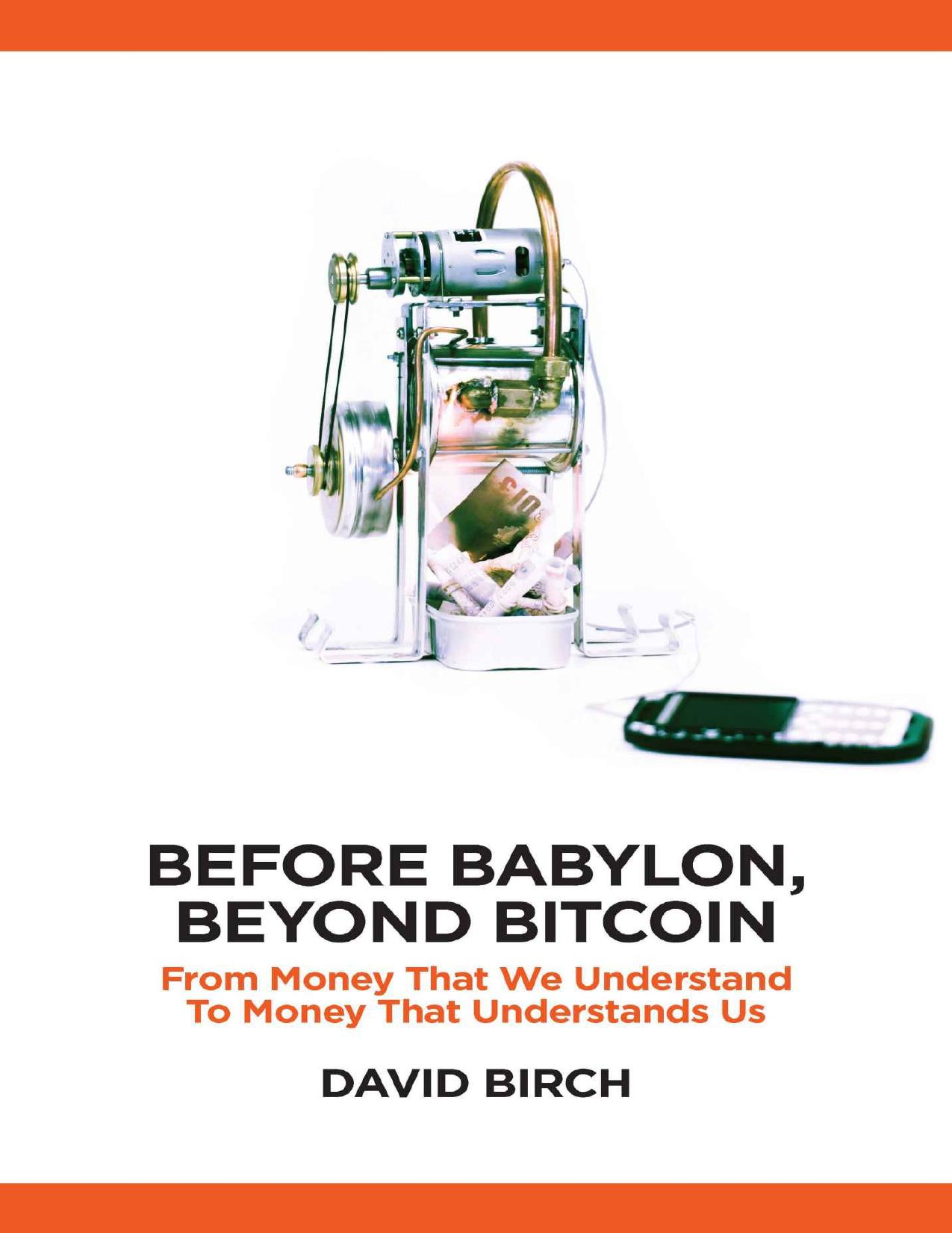Before Babylon, Beyond Bitcoin: From Money that We Understand to Money that Understands Us (Perspectives) by David Birch

Author:David Birch [Birch, David]
Language: eng
Format: epub, pdf
Publisher: London Publishing Partnership
Published: 2017-06-15T07:00:00+00:00
Neither the banks nor the merchants nor the regulators know what is coming next, and the experiences of regulators who have meddled with the price of payments (in Europe, Australia and the United States) have confirmed the ineffectual nature of this kind of transfer of private costs between market participants.
Given these problems, what should be regulated? Well, if we focus on minimizing the social cost of payment systems as a key reason for delivering electronic money as a universal service, we might reasonably expect social benefits. The social cost of cash (that is, the resources that society as a whole consumes to use cash) has been difficult to estimate in the past, but recent, detailed central bank studies in Belgium and the Netherlands have shown that that cost in developed markets with high card penetration is around 0.5 per cent of GDP (0.48 per cent in the Netherlands and 0.58 per cent in Belgium, in fact).
In relation to the universal service arguments, note that the marginal costs are noticeably different, with the marginal cost of cash being about four times the marginal cost of electronic money (van Hove 2006). Cross-subsidizing cash is not, therefore, a welfare-maximizing strategy, and society should switch to cost-based pricing and leave the rest to the market. This strategy would see debit card transactions triple or quadruple in value while cash transactions would fall by a third. A Belgian study estimates that this approach would make Belgium and the Netherlands about €200 million and €150 million better off, respectively. Scaling up, the European countries they study would as a whole save about 0.14 per cent of GDP (i.e. about a third of the total social cost).
So if we get rid of cash, we save everybody money and everyone’s life is made more convenient. Well, if everyone is using electronic money, that’s true. What we do not want is for electronic money to become the demarcation line in a two-tier society. We do not want electronic money to become the hallmark of the included while physical money becomes the hallmark of the excluded. But what about those people who cannot or will not move to electronic money. There are, essentially, three options:
people should be allowed to continue to use notes and coins at their own expense or
people should be allowed to continue but at someone else’s expense or
people should not be allowed to continue to use physical cash.
Download
Before Babylon, Beyond Bitcoin: From Money that We Understand to Money that Understands Us (Perspectives) by David Birch.pdf
This site does not store any files on its server. We only index and link to content provided by other sites. Please contact the content providers to delete copyright contents if any and email us, we'll remove relevant links or contents immediately.
Hit Refresh by Satya Nadella(9125)
When Breath Becomes Air by Paul Kalanithi(8426)
The Girl Without a Voice by Casey Watson(7885)
A Court of Wings and Ruin by Sarah J. Maas(7819)
Do No Harm Stories of Life, Death and Brain Surgery by Henry Marsh(6934)
Shoe Dog by Phil Knight(5257)
The Rules Do Not Apply by Ariel Levy(4957)
A Higher Loyalty: Truth, Lies, and Leadership by James Comey(4954)
Hunger by Roxane Gay(4921)
Tuesdays with Morrie by Mitch Albom(4769)
Everything Happens for a Reason by Kate Bowler(4733)
The Immortal Life of Henrietta Lacks by Rebecca Skloot(4576)
Millionaire: The Philanderer, Gambler, and Duelist Who Invented Modern Finance by Janet Gleeson(4465)
How to Change Your Mind by Michael Pollan(4355)
All Creatures Great and Small by James Herriot(4311)
The Money Culture by Michael Lewis(4198)
Man and His Symbols by Carl Gustav Jung(4128)
Elon Musk by Ashlee Vance(4121)
Tokyo Vice: An American Reporter on the Police Beat in Japan by Jake Adelstein(3981)
